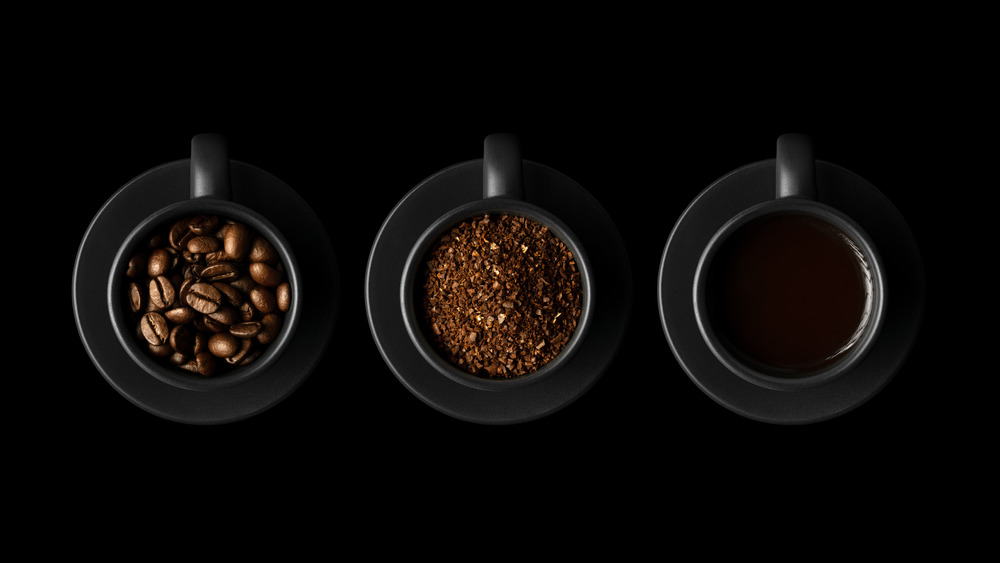Don't Make Another Cup Of Coffee Before Reading This
According to Statista, the average amount of coffee consumed per capita in the USA in 2020 was 1.87 cups a day. The numbers range by age group and gender, with people over 70 years old and men on the higher end of the spectrum. Regardless of the specific figures, it's undeniable that across the USA, coffee is consumed in large quantities. Whether you can't engage in conversation before having your morning coffee or drink it because you can't get enough of the flavor, there are some relevant health considerations that should be addressed.
Mashed spoke with Kristen Carli, a Registered Dietitian Nutritionist and owner of Camelback Nutrition & Wellness, to see which concerns are warranted. Carli notes past research suggesting "that coffee may cause cardiovascular disorders, bladder, pancreatic, and esophageal cancer are very outdated." She says "those studies did not take into account that heavy coffee drinkers also tended to use tobacco and be sedentary." Carli mentions that the recent studies seem to shine a more positive light on the beloved bean. She explains, "Drinking coffee might decrease your risk for Parkinson's disease, type 2 diabetes, liver disease, and cardiovascular disease." A possible explanation might be related to the antioxidant content in coffee. Though the research is not yet clear on the exact mechanisms, according to Carli, "It is likely the antioxidants also have an anti-inflammatory effect on the body."
What's in coffee?
Besides antioxidants, Carli adds that "coffee contains small amounts of minerals the body needs such as potassium, niacin, and magnesium." These all seem like positive qualities; however, the nutritional issue often stems from what people are putting in their coffee. If you are adding plenty of sugar and cream to your coffee daily, or regularly consuming sugary high-fat coffee shop drinks, this will likely have some downstream effects (via Insider).
Whether you drink your coffee black or topped with whipped cream, another factor you should be aware of is caffeine. Carli cautions, "Three to five 8-ounce cups of coffee provide about 400 milligrams of caffeine, which is the most that is recommended per day for healthy adults." She warns pregnant women not to consume more than half of that amount. Some people react more heavily to caffeine, so "if you are someone who gets jittery or anxious when drinking caffeine, consider a decaffeinated version." All the beneficial components of coffee will be present in decaffeinated versions, but for some people, the stimulant effect of caffeine is overwhelming.
How coffee it farmed?
As with many products we consume, coffee starts with farming. According to Carli, some people harbor "health concerns about the use of pesticides and agricultural chemicals in coffee farming [and] whether harmful chemical residues reach our systems when we drink coffee." Due to the lengthy method required to process coffee beans, Carli suspects "it is unlikely that any pesticides or chemicals ever make it to your cup." If this isn't sufficient evidence for you, she recommends choosing organic, traditionally grown, or sustainable coffee.
Since coffee beans are generally grown in developing countries lacking adequate labor laws, it is a good idea to look for products certified as fair trade, according to Grounds for Change. This supports farming families, providing them with more stability, a better quality of life, and fair conditions.
Thankfully, it seems that health and nutrition expert Kristen Carli is onboard with coffee consumption as long as it is done mindfully. We weren't ready to give up our daily brew!


